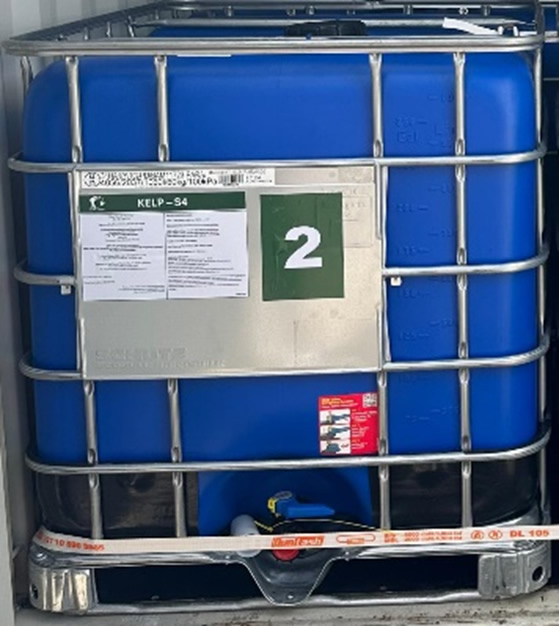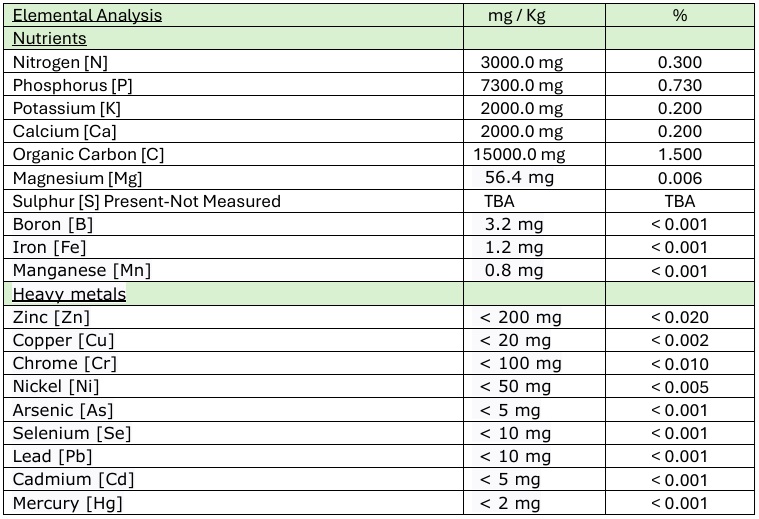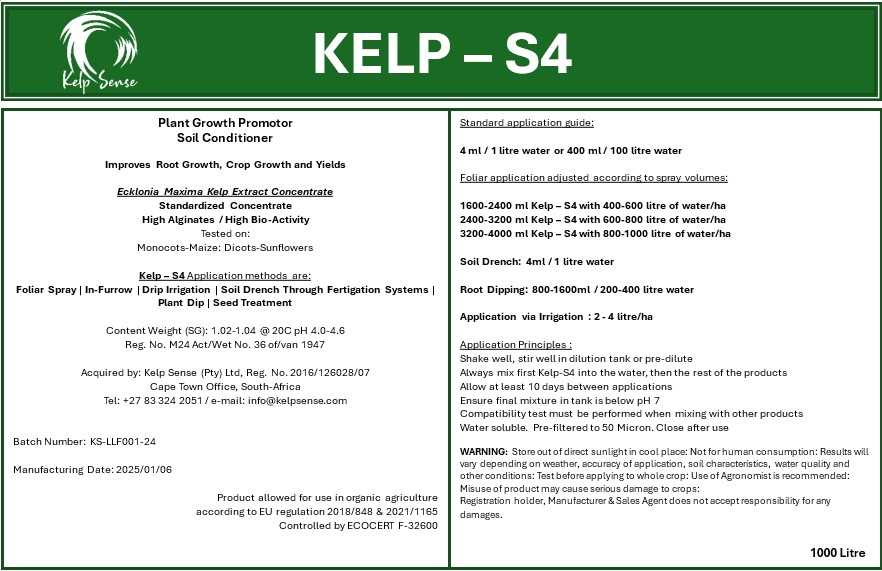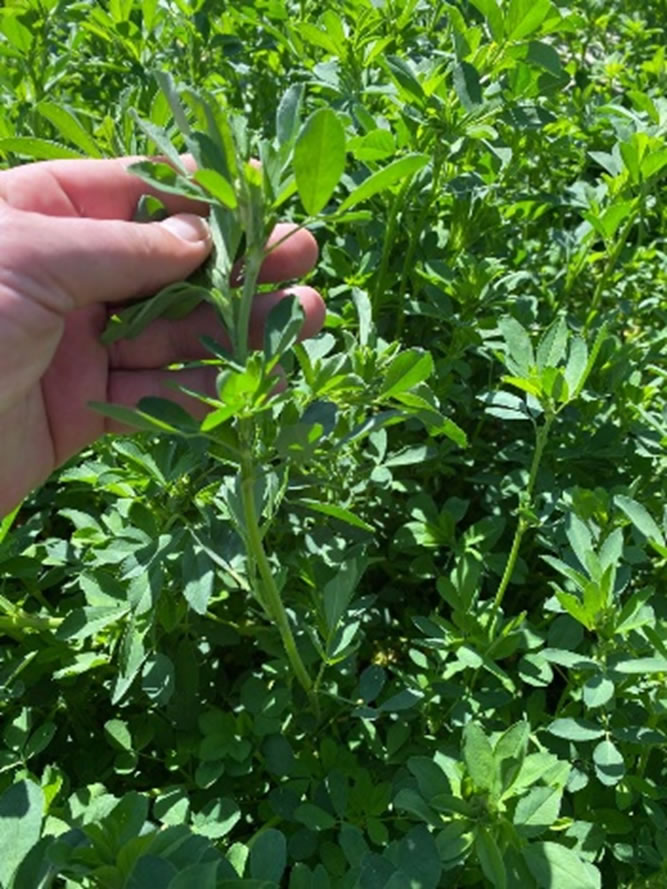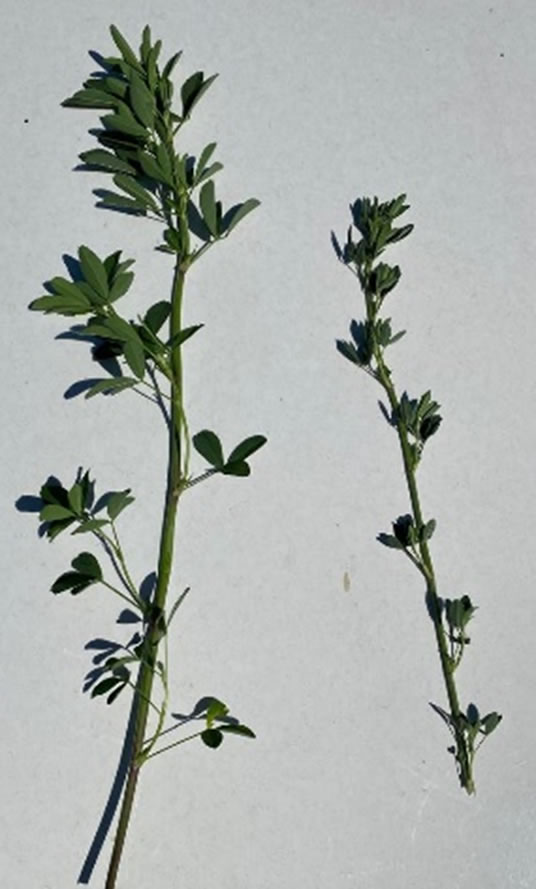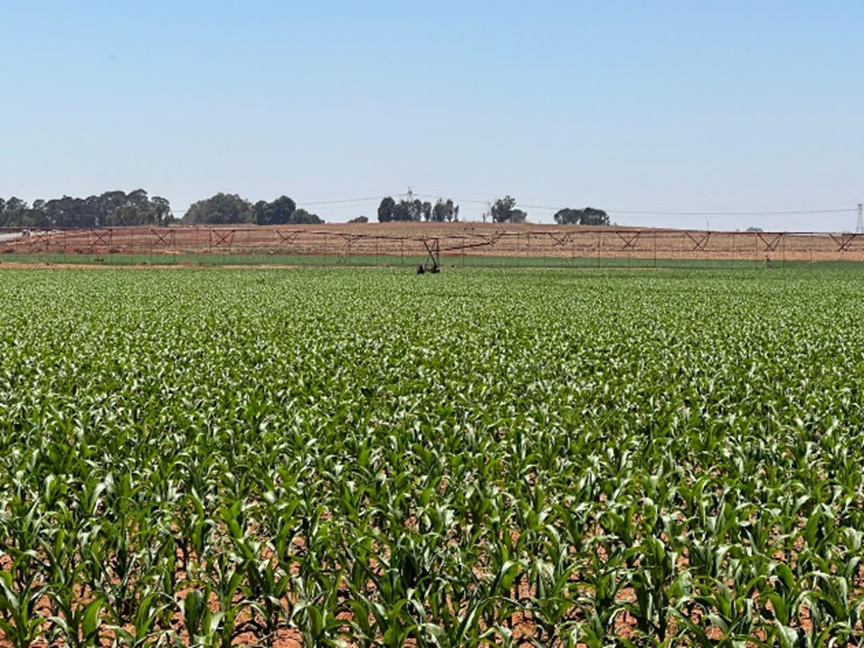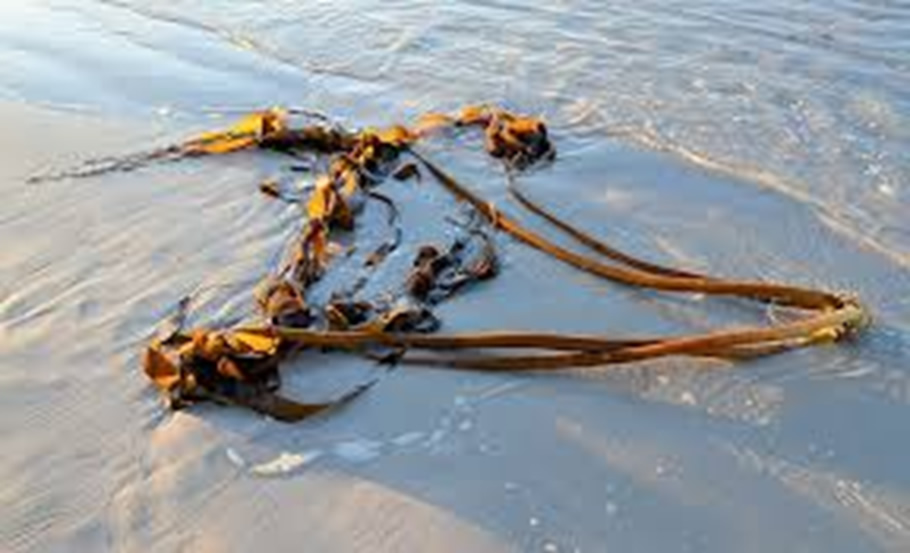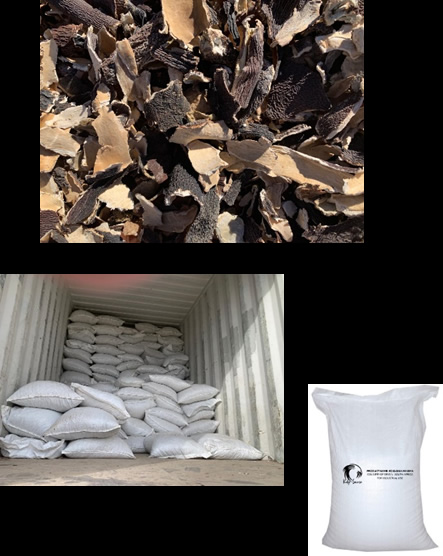Products
Harnessing the power of the ocean
We pride ourselves on delivering high-quality kelp products sourced from the pristine waters of the Atlantic Ocean of South Africa.We pride ourselves on delivering high-quality kelp products sourced from the pristine waters of the Atlantic Ocean of South Africa.
Liquid Kelp
Liquid kelp is a concentrated form of Kelp extract, typically derived from Ecklonia Maxima species. It’s processed into a liquid form, making it an easy-to-use and highly effective plant bio-stimulant.
Macronutrients:
- Nitrogen (N): Supports vegetative growth, encouraging the production of leaves and stems.
- Phosphorus (P): Crucial for root development and overall plant vigour, important during early plant growth and flowering.
- Potassium (K): Aids in stress resistance, helps regulate water balance, and boosts overall plant health.
Micronutrients:
- Calcium (Ca), Magnesium (Mg), Iron (Fe), Zinc (Zn), Boron (B), and others are present in trace amounts and are essential for various plant physiological processes, including enzyme activation, photosynthesis, and maintaining cell structure.
Hormones:
- Auxins: Promote root development and cell elongation, helping plants grow more robustly and establish stronger root systems.
- Cytokinin: Encourage cell division and the development of new shoots, buds, and flowers.
- Gibberellins: Stimulate stem elongation and can also promote flowering.
- Abscisic Acid (ABA): Helps plants deal with stress by regulating water loss.
Amino Acids:
- Building blocks of proteins, amino acids in liquid kelp contribute to the overall growth and repair of plant tissues, enhancing their ability to withstand environmental stress.
Polysaccharides and Alginates:
- These complex carbohydrates help improve soil structure and increase water retention. They also promote the growth of beneficial microorganisms in the soil, improving soil health and fertility.
Effects on Plants:
- Root Growth: Liquid kelp encourages extensive root systems, allowing plants to access more nutrients and water, improving their resilience to drought conditions.
- Growth Stimulation: The natural plant hormones, especially auxins and cytokinin, stimulate faster, more vigorous growth in both shoots and roots.
- Stress Tolerance: By boosting the plant’s ability to retain water, resist pests, and adapt to temperature fluctuations, kelp extract helps plants better withstand environmental stresses like drought, salinity, and pest invasions.
- Improved Nutrient Uptake: The components in liquid kelp help plants absorb nutrients more efficiently, ensuring balanced and healthy growth. It also helps improve the microbial activity in the soil, increasing the availability of nutrients to plants.
- Increased Yields and Flowering: Foliar sprays of liquid kelp have been shown to increase the production of flowers and fruits in plants, making it a popular choice for gardeners and farmers looking to boost their harvests.
Application Methods:
- Soil Application: Liquid kelp can be diluted with water and applied directly to the soil, where it will be absorbed by the roots.
- Foliar Spray: A diluted solution can be sprayed onto the plant leaves, allowing for faster absorption through the leaf stomata, leading to quicker effects.
- Seed Soak: Before planting, seeds can be soaked in a liquid kelp solution to promote faster germination and stronger early growth.
Kelp Mince
Kelp mince, made from finely chopped fresh Ecklonia Maxima kelp, can be a great base for creating nutrient-rich blends for agricultural use.
This type of kelp is packed with essential minerals, trace elements, and natural growth hormones that promote plant health. When used in agriculture, kelp mince can enhance soil fertility, improve plant growth, and support better crop yields.
It’s often added to compost, mixed into soil, or used as a foliar spray to deliver nutrients directly to plants.
Kelp Mince include:
- Alginate: This polysaccharide helps improve soil structure by holding moisture and nutrients.
- Amino acids and growth hormones (cytokinins, auxins, gibberellins): These stimulate plant growth, seed germination, and root development.
- Trace minerals (such as iodine, calcium, magnesium, potassium, sulfur): Essential for overall plant vitality and pest resistance.
- Vitamins: Important for plant health, including vitamin C and B-vitamins that help with energy production and stress resistance.
Benefits in Agriculture
- Improved Soil Health: Kelp mince adds organic matter to the soil, helping to improve its structure, water retention, and aeration. It can also encourage microbial activity, which supports a healthy soil ecosystem.
- Plant Growth Stimulation: The natural hormones in kelp, such as auxins and cytokinins, enhance seedling development, root growth, and plant resilience. It can help plants grow faster, with stronger root systems, leading to better nutrient uptake.
- Nutrient Boost: Kelp provides a wide array of nutrients that plants need to thrive. These include essential macro and micronutrients, such as nitrogen, phosphorus, potassium, and trace minerals that improve overall plant health and productivity.
- Pest and Disease Resistance: The natural compounds in kelp mince can help plants become more resistant to environmental stress and pest attacks, reducing the need for chemical fertilizers and pesticides.
- Stress Tolerance: Kelp is known for helping plants cope with environmental stresses like drought, salinity, and temperature fluctuations by strengthening cell walls and supporting the plant’s stress-response mechanisms.
Dry Beach Cast Kelp
Sun-dried beach-cast kelp is a remarkable natural resource, offering a myriad of benefits across different fields.
Its applications in agriculture, animal feed, culinary arts, and cosmetics highlight its versatility and value.
Moreover, its role in supporting coastal ecosystems and carbon sequestration underscores the importance of sustainable practices in its utilization.
By appreciating and responsibly managing this coastal treasure, we can harness its full potential while preserving the health and beauty of our shorelines for future generations.
Uses of Sun-Dried Beach-Cast Kelp
The applications of sun-dried kelp are numerous and varied, spanning across different industries:
- Agriculture
Sun-dried kelp is often used as a natural fertilizer. Its high content of essential minerals and trace elements provides a rich nutrient supply for soil, promoting healthy plant growth. It also helps in improving soil structure and moisture retention.
- Animal Feed
Kelp can be ground into powder and added to animal feed, particularly for livestock and pets. Its nutrient-rich composition supports overall health and productivity, providing animals with essential vitamins, minerals, and amino acids.
- Nutrition
In many cultures, dried kelp is a culinary staple. It is used to enhance the flavour of soups, stews, and various dishes. Rich in iodine, magnesium, calcium, and other nutrients, kelp is a valuable addition to a balanced diet. It is also known for its potential health benefits, including aiding thyroid function and promoting digestive health.
- Cosmetics and Skincare
The beauty industry has recognized the benefits of kelp, incorporating it into products like face masks, lotions, and serums. The natural compounds in kelp are believed to hydrate the skin, promote elasticity, and provide anti-aging benefits.

